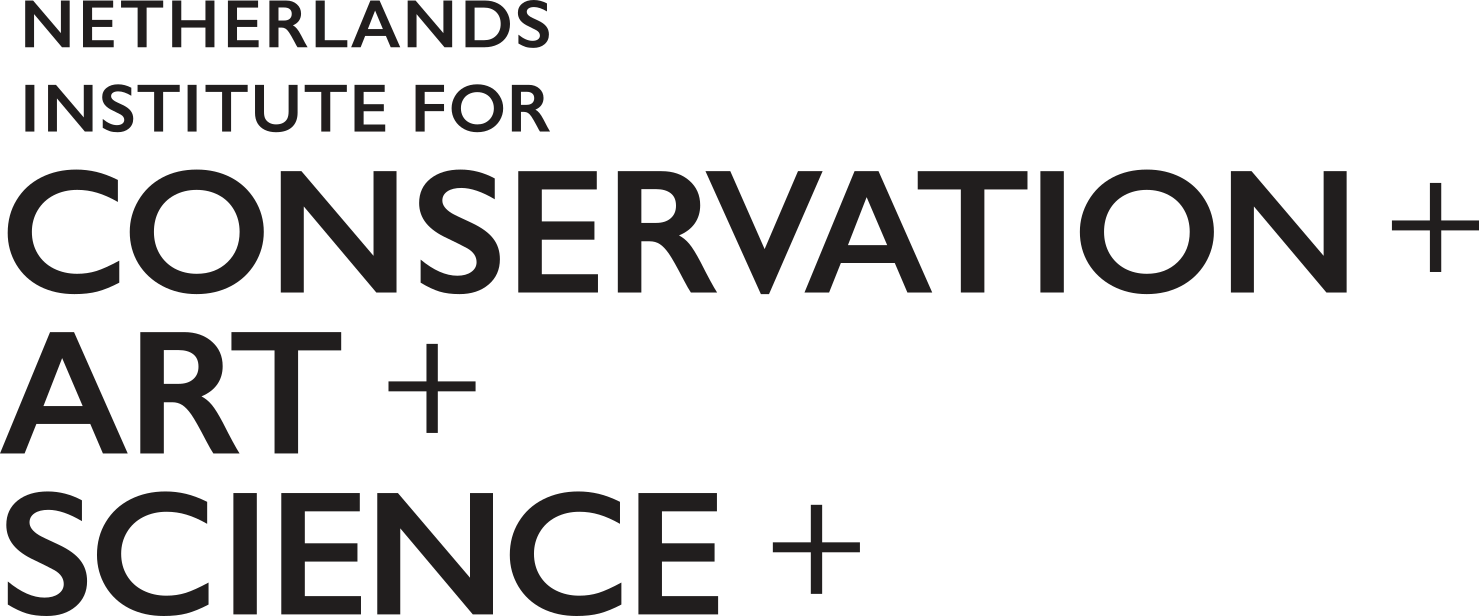Media
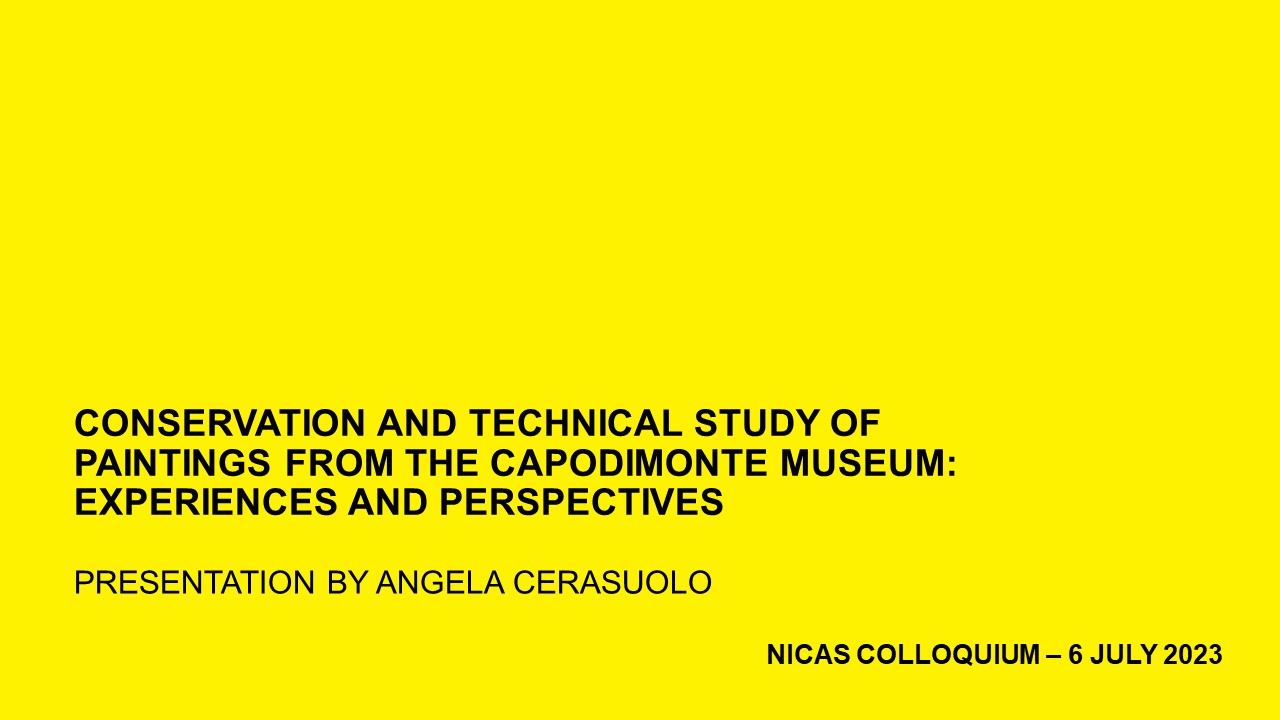
NICAS Colloquium
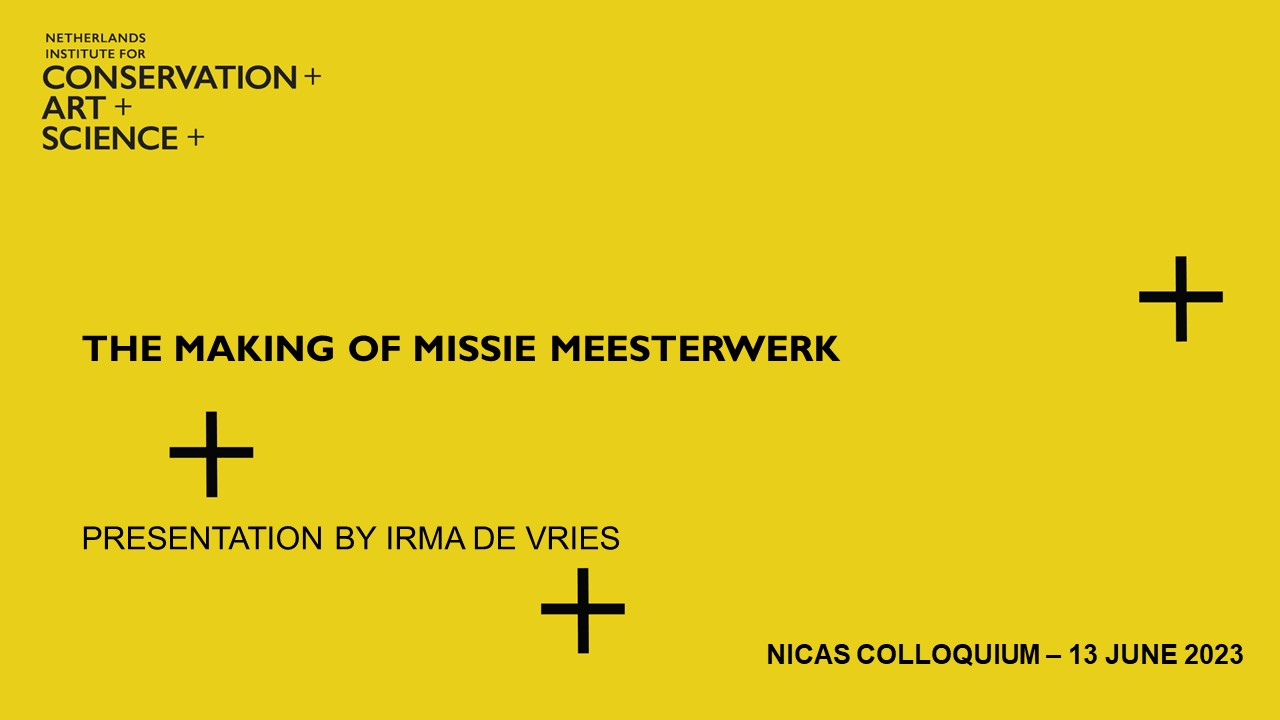
NICAS Project Day 2023
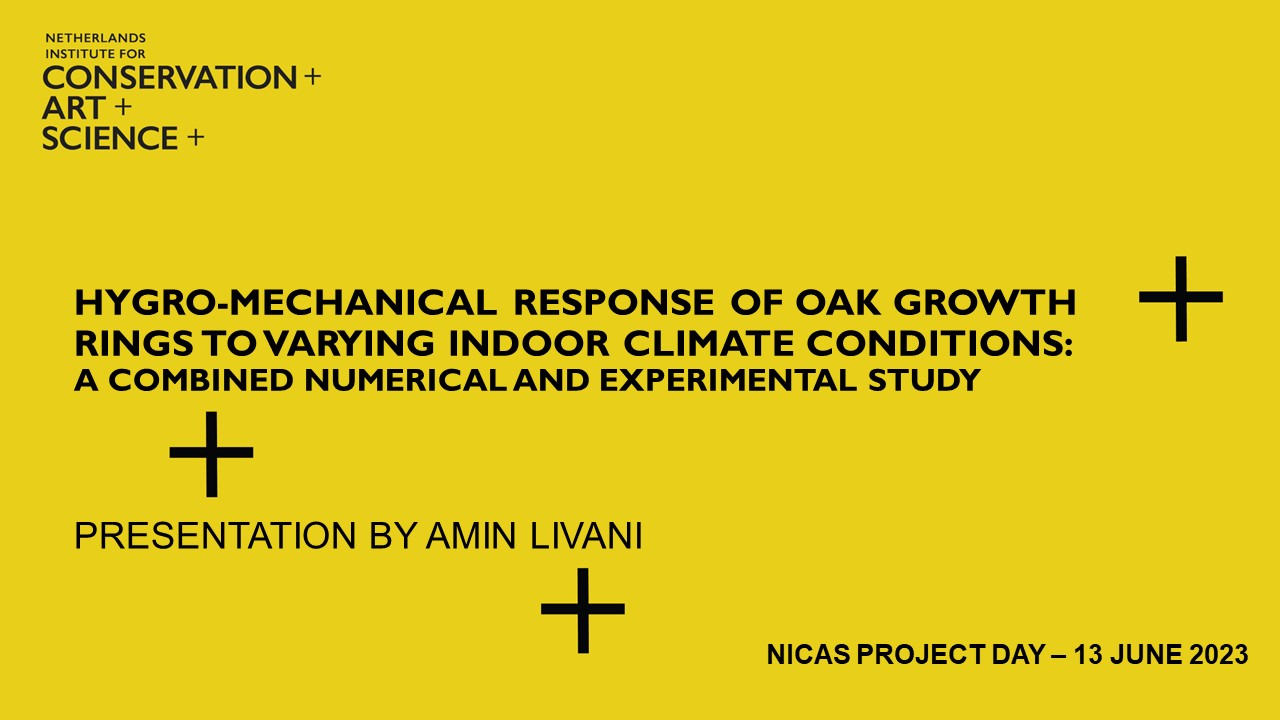
NICAS Project Day 2023
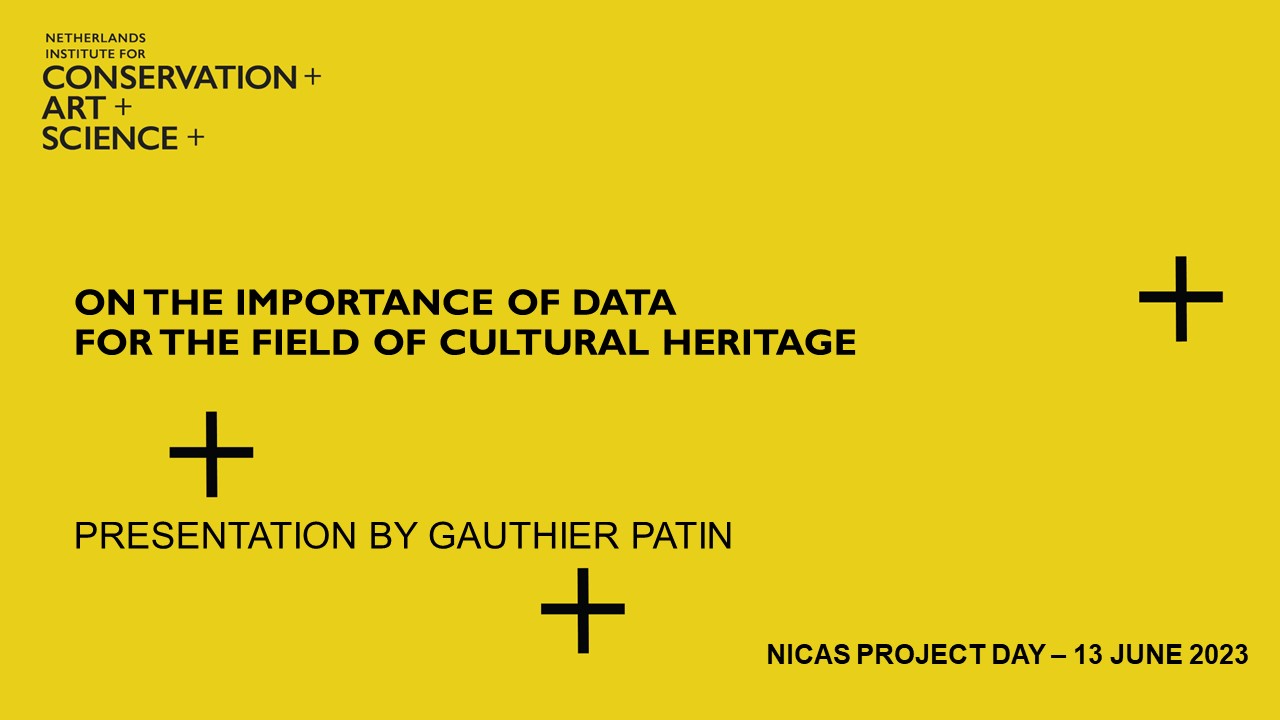
NICAS Project Day 2023
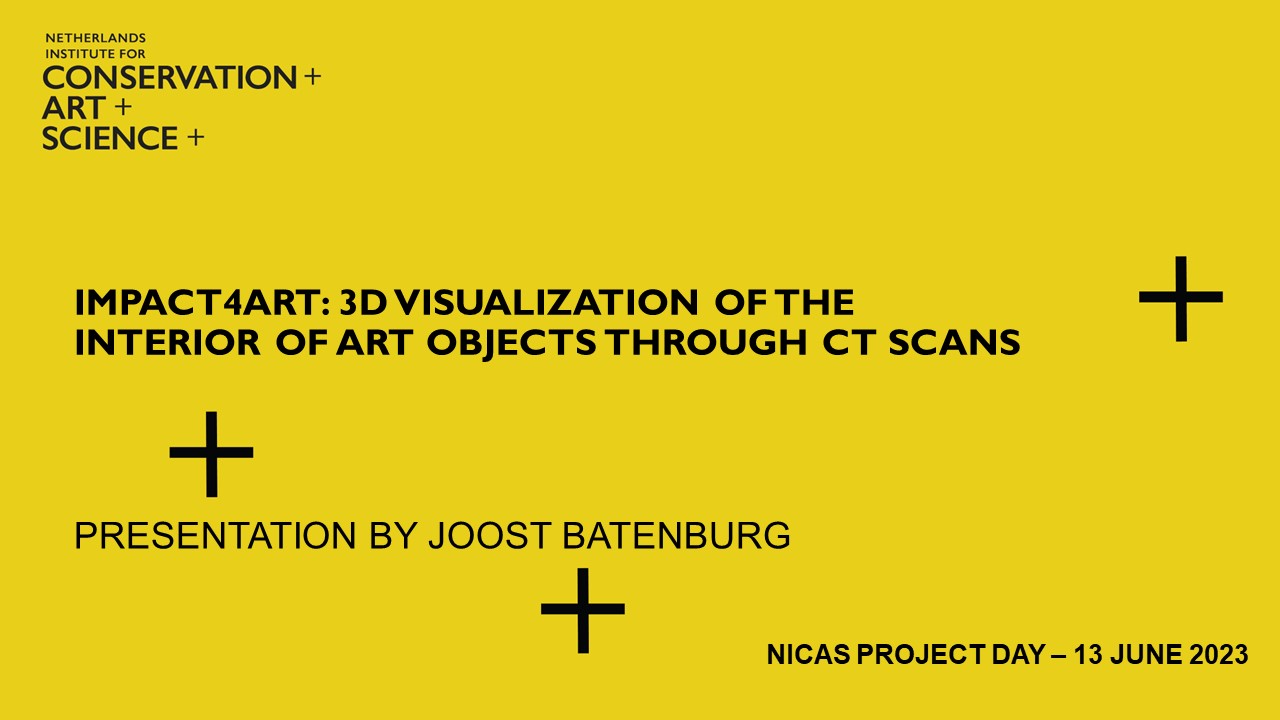
NICAS Project Day 2023
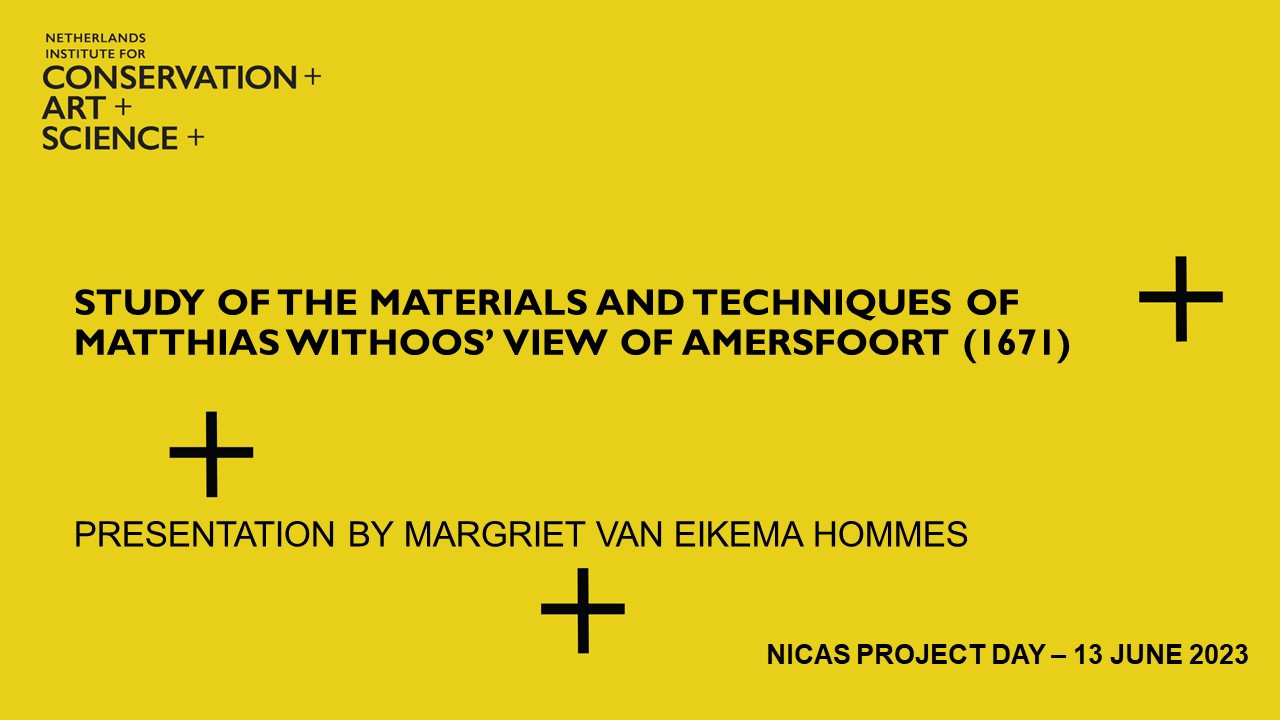
NICAS Project Day 2023
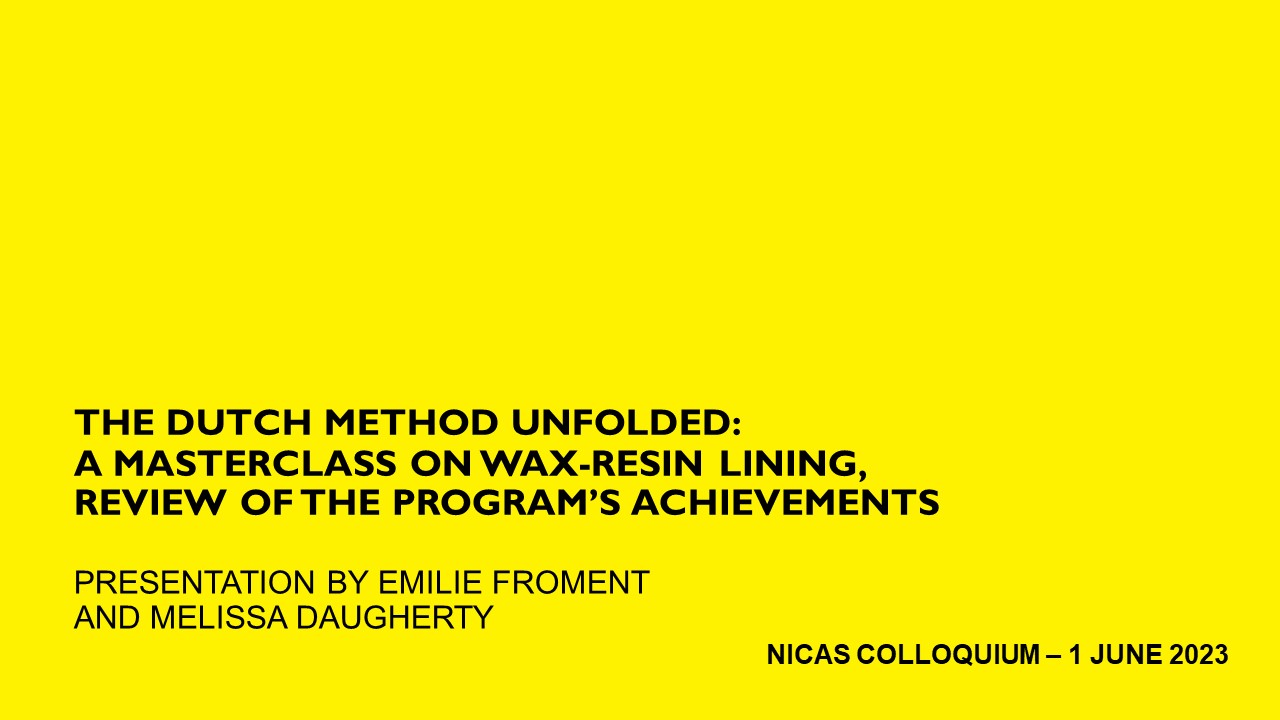
NICAS COLLOQUIUM
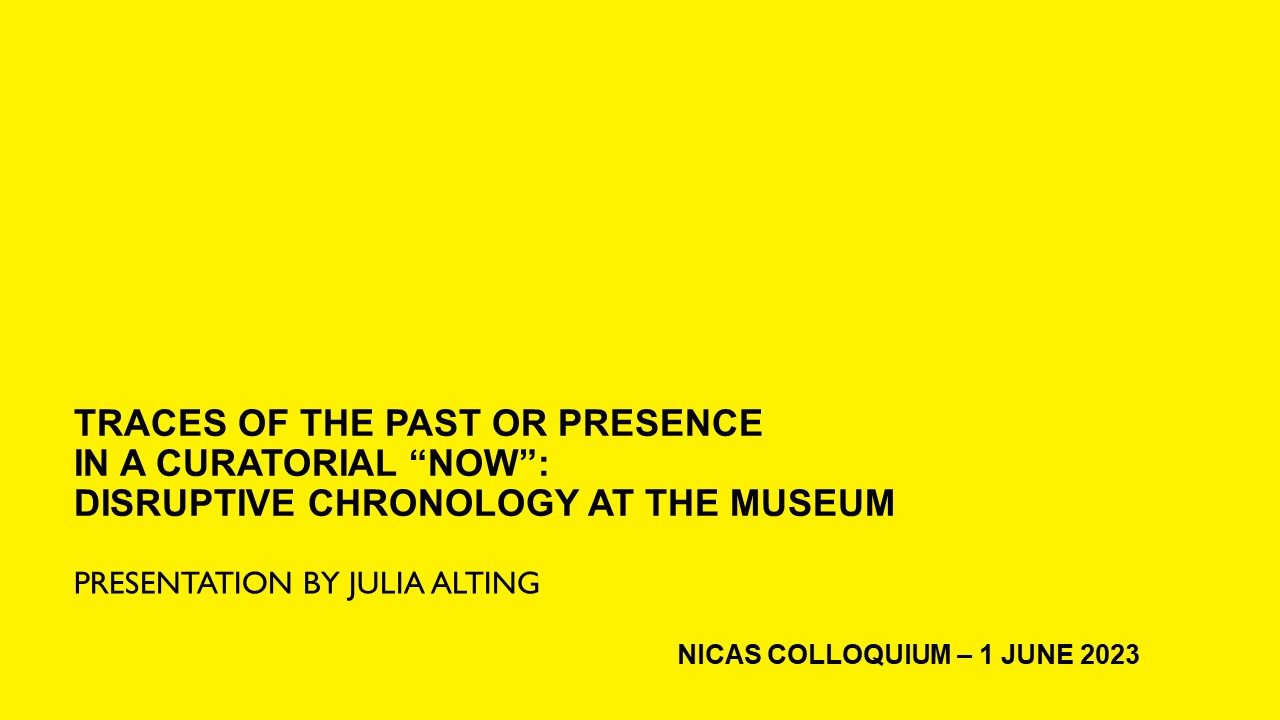
NICAS COLLOQUIUM
-
NICAS Colloquium
Angela Cerasuolo, head of the conservation department of the Capodimonte Museum Napoli, presents: Conservation and technical study of paintings from the Capodimonte Museum: experiences and perspectives -
NICAS Project Day 2023
Irma de Vries on the Making of Missie Meesterwerk -
NICAS Project Day 2023
Amin Livani on Hygro-Mechanical Response of Oak Growth Rings to Varying Indoor Climate Conditions: A Combined Numerical and Experimental Study -
NICAS Project Day 2023
Gauthier Patin on the Importance of Data for the field of Cultural Heritage -
NICAS Project Day 2023
Joost Batenburg on Impact4Art: 3D Visualization of the Interior of Art Objects through CT Scans -
NICAS Project Day 2023
Margriet van Eikema Hommes on - Study of the Matthias Withoos' View of Amersfoort 1671 -
NICAS COLLOQUIUM
Emilie Froment and Melissa Daughtery - The Dutch Method Unfolded. A Masterclass on Wax-Resin Lining, Review of the Program’s Achievements Abstract: Emilie Froment and Melissa Daugherty will present on The Dutch Method Unfolded, a masterclass on wax-resin lining targeted to an international group of conservation specialists. The Dutch Method Unfolded is a two-week multidisciplinary program that aims to help professionals in the fields of art history and conservation to understand the physical condition of wax-resin lined paintings. It therefore contributes to the conservation of paintings that have been subjected to wax-resin lined treatment. Furthermore, the masterclass provides a platform to share expertise and reflect on the consequences of wax-resin linings for today’s conservation approaches and art history. The masterclass ran throughout 2 years; it was completed in June 2022 with a workshop in Amsterdam. The talk will review the two years of activities and share future perspectives. The project was funded by the Getty Foundation as part of its Conserving Canvas grant initiative. Bio: Dr. Emilie Froment is trained as art historian and paintings conservator in Paris I, Pantheon Sorbonne. Since 2008 she has been teaching paintings conservation at the department Conservation and Restoration of Cultural Heritage of the University of Amsterdam. She also coordinates the paintings specialty. In January 2019, she received her PhD at the UvA on the consequences of wax-resin linings for the present appearance and conservation of Netherlandish seventeenth century paintings on canvas. In 2020, she created the Amsterdam Wax-Resin Project (AWRP) a research and educational project focused on wax-resin lining and the conservation of wax-resin lined paintings. Melissa Daugherty obtained her bachelor’s in Art History at the University of Leiden and completed her master’s Conservation and Restoration of Cultural Heritage at the UvA, specializing in paintings. After receiving her post-graduate diploma in 2014 she founded a multi discipline conservation studio with four colleagues in Amsterdam. She has been a private paintings conservator for the last eight years but started working for the Rijksmuseum in January 2023. Since 2020 she has been working together with Emilie for the AWRP focusing on the masterclass. -
NICAS COLLOQUIUM
Julia Alting - Traces of the past or presence in a curatorial “now”: disrupting chronology at the museum Abstract: The question of linear chronology and historical time is taken up more widely today by art historians. This paper investigates the disruption of chronology in the exhibition A-historische klanken (1988) curated by Harald Szeemann at Boijmans van Beuningen, Rotterdam. I trace the history of a Sri Lankan ivory portable cabinet (c. 1680-1710) in the exhibition. It was brought to the Netherlands by the VOC, purchased by the museum in 1945 and restored for a period of 11 years (1959-1970) in which the entire wooden inner structure of the cabinet had to be replaced. This turbulent ‘life’ is obscured by the cabinet’s inclusion in A-historische klanken, which emphasizes the ‘timeless’ quality of art objects. The tension between the ahistorical temporality of the curation and the many time scales of the cabinet and its colonial history provoke further questions of how the historical time of art history could be negotiated. Bio: Julia Alting is a PhD candidate at the Groningen Research Institute for the Study of Culture (ICOG). Previously she studied art history and cultural studies at Amsterdam University College and New York University, and completed an MA asian studies and a ResMA arts and culture at Leiden University and SOAS, University of London. Her research assesses nonlinear approaches to art historical time and she lectures on feminist and decolonial critiques of the discipline. She has been a recipient of the Amsterdam University Fund, Erasmus and Uhlenbeck Scholarships and Research Grants at the Royal Netherlands Institute in Rome.
